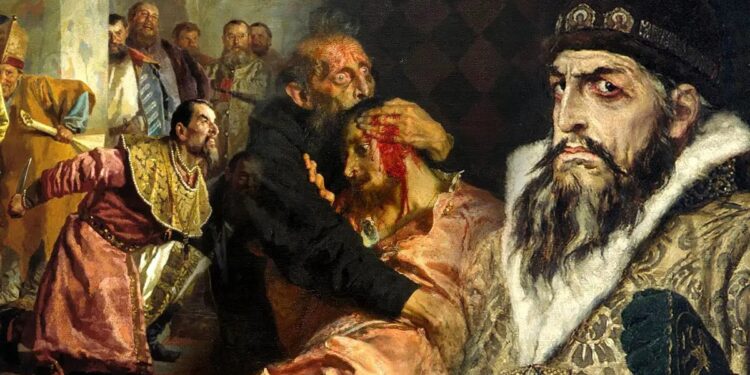On December 4, 1533, three-year-old Ivan IV Vasilyevich became the Grand Prince of Moscow following the sudden death of his father, Vasily III. This unexpected succession thrust the young heir into a complex political landscape dominated by court intrigue and powerful noble families who would vie for control during his minority.
Ivan’s father had deliberately centralized power during his reign, and his death created a precarious situation for the young heir. His mother, Elena Glinskaya, became regent, attempting to protect her son’s interests and maintain the stability of the Moscow principality. However, her rule was fraught with challenges from competing noble factions eager to influence the young prince’s future.
The Glinskaya regency would be short-lived. Elena died in 1538, leaving the young Ivan vulnerable to the machinations of the boyar aristocracy. During these early years, Ivan experienced significant trauma, witnessing the political manipulations surrounding his throne and suffering from periods of neglect and uncertainty.
Despite his young age, Ivan’s ascension marked a critical moment in Russian history. The Moscow principality was expanding its influence, gradually transforming from a regional power to a centralized state that would eventually become the Russian Empire. The seeds of Ivan’s future transformation into the powerful and feared ruler known as Ivan the Terrible were already being planted during these tumultuous early years.
The young prince was surrounded by competing noble families who sought to control the regency. The Shuisky and Belsky families, in particular, engaged in intense political struggles, using the young Ivan as a political pawn in their ongoing conflicts. These experiences would later shape Ivan’s approach to governance, instilling in him a deep distrust of the nobility and a determination to centralize royal power.
Educational records suggest that Ivan received a comprehensive education during his minority, studying theology, history, and statecraft. He developed a keen intellect and a complex personality that would later define his controversial reign. The young prince showed early signs of the intense, often volatile character that would earn him the moniker “the Terrible.”
By the time Ivan reached adulthood, he was determined to break the power of the noble families that had manipulated him during his childhood. His coronation as the first Tsar of Russia in 1547 would be a direct result of the political foundations laid during these early, tumultuous years of his rule.
The ascension of three-year-old Ivan as Grand Prince of Moscow in 1533 was more than a simple royal succession – it was the beginning of a transformative period that would reshape the political landscape of Eastern Europe for generations to come.
newshub



Recent Comments